The entertainment landscape has been rocked by a seismic event, sending shockwaves far beyond the usual late-night chatter. The news of CBS’s decision to cancel the entire *Late Show* brand, including its formidable host Stephen Colbert, has triggered a ripple effect that touches upon the very foundations of power, politics, and television culture. This wasn’t merely a programming change; it was an upheaval that immediately drew the attention of industry titans, former rivals, and a deeply divided public, each attempting to unravel the complex web of motivations behind such an unprecedented move.
From the outset, the announcement ignited a furious debate: was this a cold, calculated financial maneuver by a struggling media conglomerate, or was it something far more insidious—a capitulation to external political pressures designed to smooth the path for a lucrative corporate merger? The previous generation’s titans, David Letterman and Jay Leno, two figures synonymous with late-night supremacy, have now weighed in, offering vastly different interpretations of the current climate and the forces at play. Their perspectives, born from decades at the pinnacle of broadcast television, provide a crucial lens through which to examine this unfolding drama.
Indeed, the cancellation has opened a Pandora’s Box of questions about the role of political commentary in late-night television, the allegiances of networks to powerful figures, and the precarious balance between artistic integrity and corporate interests. As the dust begins to settle, a closer look at the key players, their statements, and the contextual backdrop reveals a narrative steeped in intrigue, corporate maneuvering, and the enduring tension between comedy and controversy in an increasingly polarized nation. This is not just a story about a TV show ending; it’s a profound commentary on the state of American media and its entanglement with the corridors of power.
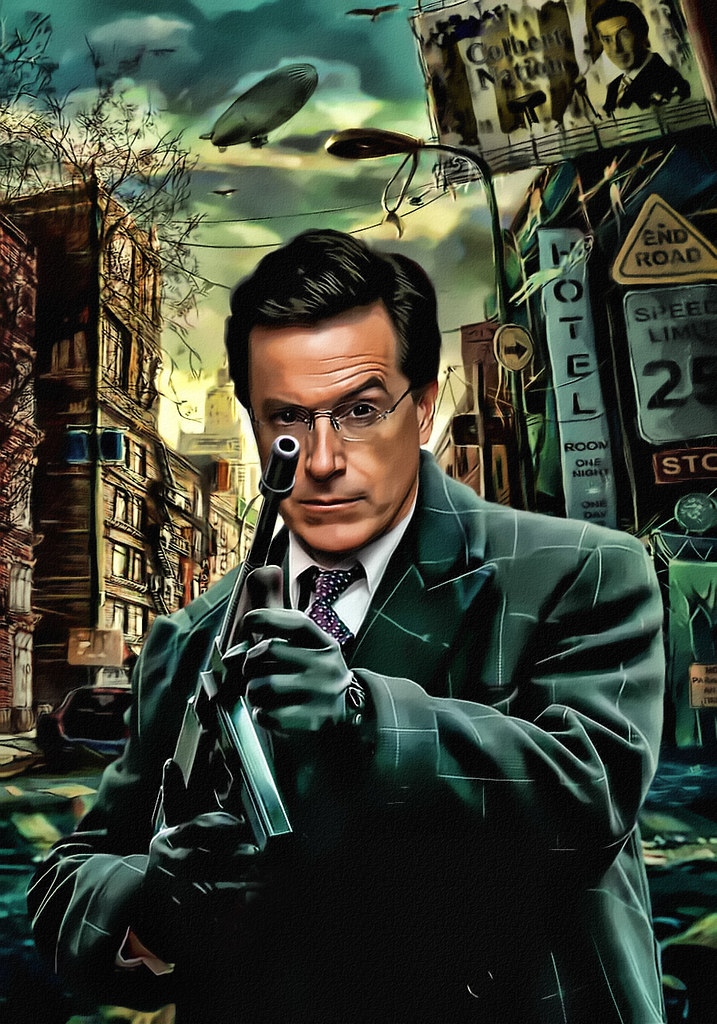
1. The Unprecedented Cancellation of The Late Show and Its Wider Reverberations
The abrupt cancellation of *The Late Show with Stephen Colbert* in May 2026, announced months in advance, sent an undeniable tremor throughout the late-night sphere and the broader entertainment industry. This was no ordinary program cessation; it was the shuttering of an entire brand, one that had been meticulously crafted to lure a frustrated David Letterman to CBS decades prior, after NBC controversially chose Jay Leno to replace Johnny Carson on *The Tonight Show*.
The initial reaction was a mix of shock and widespread criticism, with many suggesting that CBS’s parent company, Paramount Global, was making yet another concession to U.S. President Donald Trump. This perception immediately framed the cancellation not as a routine business decision, but as a politically charged capitulation, an attempt to appease powerful figures amidst sensitive corporate dealings. The ripples spread backward in time, drawing forth the voices of late-night royalty like Letterman and Leno, who now found themselves compelled to comment on the politicization of a format they once dominated.
The decision to end a top-rated late-night program, especially one fronted by a personality as influential as Colbert, defied conventional wisdom about ratings and profitability. While some outlets like *The Wall Street Journal* pointed to profitability challenges despite high ratings, the timing and context of the announcement led many to scrutinize the deeper, more complex motivations. This wasn’t just about viewership numbers; it was about the perceived bending of the knee, a yielding to external pressures that threatened the very notion of independent comedic expression on network television.
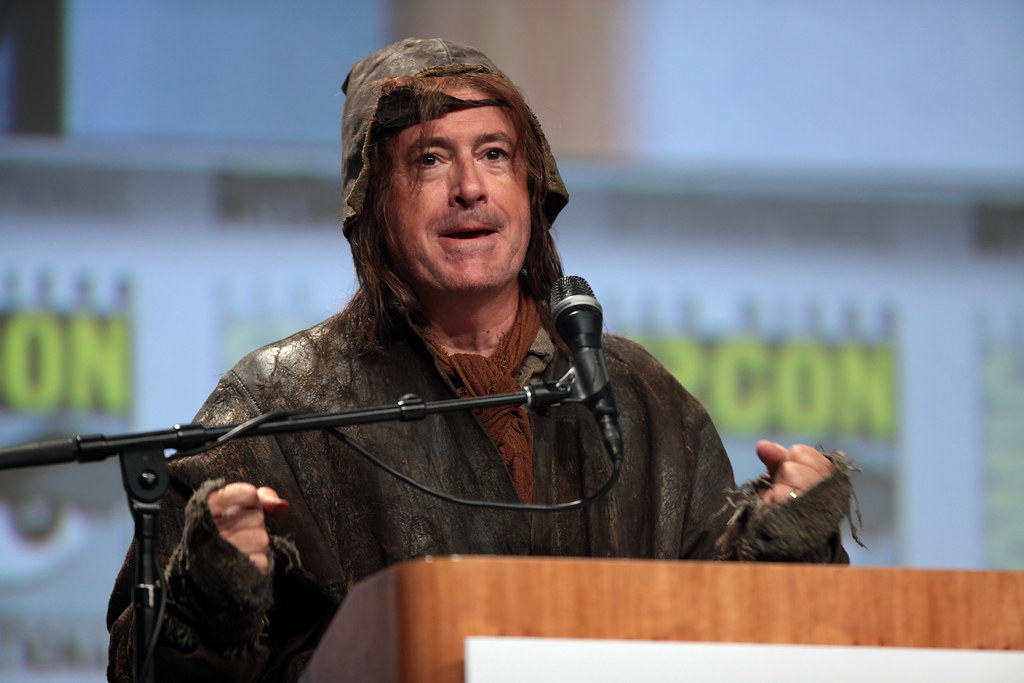
2. Stephen Colbert’s Politically Charged Ascent and Liberal-Leaning Comedy
Stephen Colbert’s comedic journey, prior to taking the reins of *The Late Show*, was deeply rooted in political satire. He first honed his sharp wit and observational skills as a correspondent on Comedy Central’s politically-focused *The Daily Show*, a crucible for many modern satirists. This experience was followed by his own highly successful spin-off, *The Colbert Report*, where he famously embodied a fictional right-wing political blowhard, brilliantly skewering conservative media personalities and political discourse.
When Colbert made the pivotal jump to network television to host *The Late Show*, he consciously shed his faux-conservative persona. In its place, he embraced and openly expressed his more genuine liberal-leaning views, transforming the legacy program into a prominent platform for pointed political commentary. During his tenure, Colbert frequently targeted “the current administration” and, as Letterman noted, even took shots at former President Biden, establishing himself as a “precise, crisp, witty political satirist” in his own right.
This embrace of overt political commentary, while cementing his position as the highest-rated personality in broadcast network late-night and making him, in Letterman’s words, “the face of the network,” also positioned him firmly on one side of the ideological divide. It meant that his humor, while celebrated by a significant portion of the audience, inherently alienated another, as Jay Leno would later argue. Colbert’s undeniable success, coupled with his outspoken critique of powerful figures, made his show a lightning rod, setting the stage for the intense scrutiny surrounding its eventual cancellation.
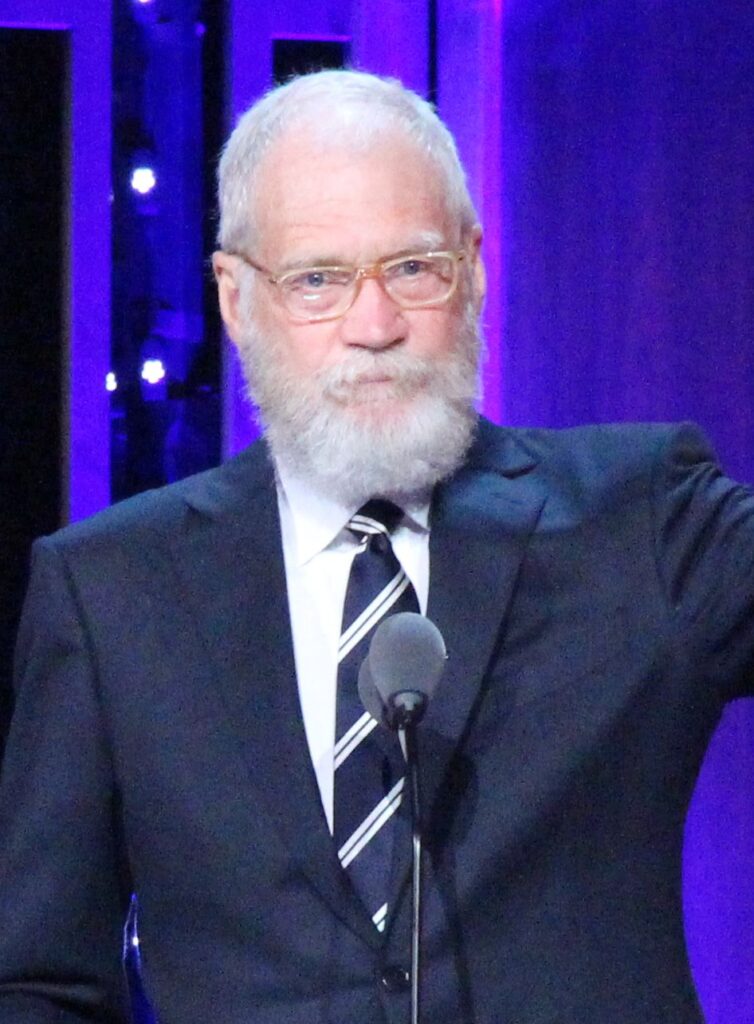
3. David Letterman’s Forceful Denunciation of CBS as ‘Pure Cowardice’
David Letterman, the legendary former host of *The Late Show*, did not mince words when reacting to the news of Colbert’s cancellation. In a new video posted to his YouTube channel, he took a strikingly firm stance, emphatically stating, “This is pure cowardice.” Letterman, who founded the venerable talk show in 1993 after moving to CBS from NBC, clearly saw the decision as a profound betrayal of journalistic and artistic integrity, rather than a mere financial calculation.
Letterman fiercely defended Colbert, describing him as a “precise, crisp, witty political satirist” who had diligently built his audience and, in his estimation, had become “the face of the network.” He decried CBS’s “unceremonious firing” of Colbert, asserting that neither the host nor the situation had been handled “in the way he deserves to have been handled,” especially given Colbert’s contributions to the brand and the network. His sentiment resonated deeply with those who viewed the cancellation as an affront to merit and loyalty.
Furthermore, Letterman explicitly pushed back against the official narrative that the decision was “purely financial.” He sarcastically questioned the suddenness of any purported monetary losses, musing, “If they were losing this kind of money, you’re telling me losing this kind of money happened yesterday? Yeah right. I bet they were losing this kind of money a month ago … six weeks ago, or they have never been losing money.” His skepticism implied a deeper, more troubling motive, suggesting that financial explanations were a convenient smokescreen for a more politically motivated action, a theme he underscored by relating the situation to corporate fear of government interference and “freedom of expression” being “so old-fashioned.”

4. Jay Leno’s Traditionalist Plea for Non-Political Late-Night
In stark contrast to David Letterman’s fiery defense of political satire, Jay Leno, the former host of *The Tonight Show*, offered a much simpler and more traditional message to late-night television: “stop being political.” Speaking in an interview with the Ronald Reagan Presidential Foundation, Leno articulated his long-held belief that late-night hosts should assiduously avoid taking sides in politics, aiming instead to unite, rather than divide, their audience.
Leno humorously recalled how he knew he was successfully navigating this delicate balance during his own hosting tenure when he received hate mail from both sides of the political spectrum for the same joke. “I got hate letters saying, ‘You and your Republican friends,’ and another saying, ‘I hope you and your Democratic buddies are happy’ — over the same joke,” he told Foundation president and CEO David Trulio. “That’s how you get a whole audience,” he concluded, emphasizing the importance of broad appeal.
He argued that choosing sides, as he perceived current late-night hosts to be doing, was “poor business.” By injecting overt political opinions, hosts are “content with half the audience,” he said, implicitly criticizing the approach taken by personalities like Colbert. Leno mused, “Why shoot for just half an audience? Why not try to get the whole?” For him, the essence of comedy in late-night was to provide an escape from life’s pressures, using late comedian Rodney Dangerfield as an example of a performer whose political leanings remained unknown, focusing solely on jokes. Leno’s conclusion was definitive: “I don’t think anybody wants to hear a lecture.”
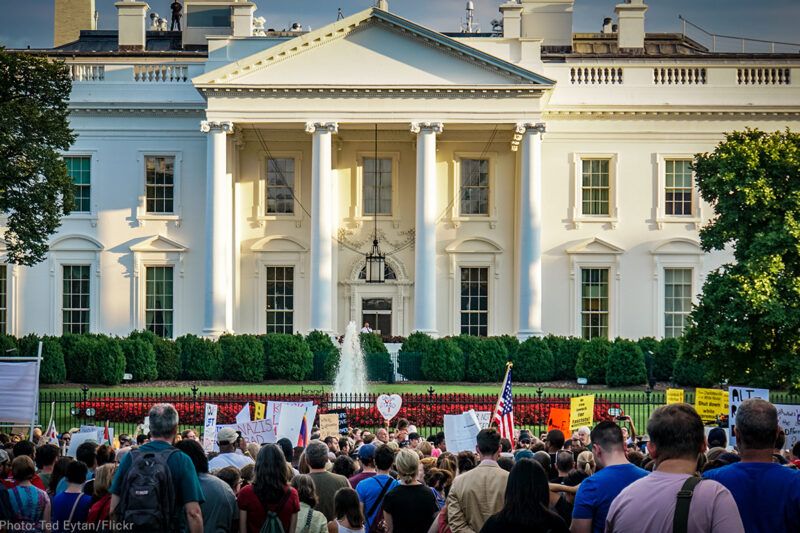
5. The Unsettling Shadow of the Trump Administration
The specter of the Trump administration loomed large over the discussions surrounding *The Late Show*’s cancellation, with many observers, including David Letterman, perceiving the move as a direct “capitulation to the Trump administration.” This belief gained traction partly due to the timing, coming just days after Colbert was vocal about reports linking Trump’s name to the infamous Epstein List, which the administration had previously insisted did not exist. The former president, for his part, openly celebrated the news, writing on Truth Social, “I absolutely love that Colbert got fired.”
Trump’s history with CBS, particularly the $16 million settlement over a *60 Minutes* interview with Kamala Harris, further fueled suspicions of political influence. Critics of the cancellation noted the close proximity of Colbert’s scathing critique of this settlement to the announcement of his show’s demise. This led to widespread speculation that the network was indeed yielding to pressure, not merely to avoid further legal entanglements but potentially to appease a powerful political figure whose influence extended into the corporate landscape.
Colbert himself, despite joking that “cancel culture had gone too far,” implicitly tied the events together, questioning how the cancellation could be a “financial decision” given his show’s top ratings. Trump’s celebratory post, where he praised Fox News’ Greg Gutfeld and disparaged Colbert’s talent, underscored the perception that the cancellation was a victory for his political agenda. The incident highlighted the uncomfortable reality of network decisions potentially being swayed by political considerations, rather than solely by entertainment value or ratings, intensifying the debate over media independence.
Read more about: Driving These 16 Electric SUVs? Here’s What Gas Truck Owners Secretly Think About You.
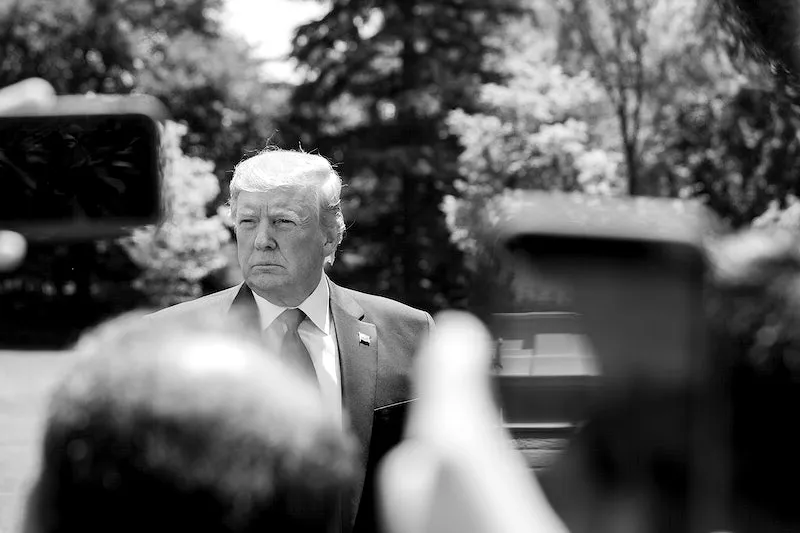
6. The Contentious $16 Million 60 Minutes Settlement with Trump
A critical precursor to *The Late Show*’s cancellation was the controversial $16 million US settlement between CBS parent company, Paramount, and former President Donald Trump. This payout resolved a lawsuit Trump brought against the company, alleging that its current affairs program, *60 Minutes*, had selectively edited an interview with his 2024 election rival, Kamala Harris. The settlement came as a surprise to many legal experts, who saw the suit as having little chance of success in court, raising eyebrows about the network’s motivations.
Stephen Colbert himself, just days before his show’s cancellation was announced, had delivered a “blistering” critique of this settlement on air. He characterized the $16 million payout as a “big fat bribe,” questioning the optics and implications of such a significant payment to a former president who also happened to be a vocal critic of his own program. This direct challenge from Colbert to his network’s corporate decision-making added another layer of complexity to the unfolding drama.
David Letterman also expressed profound doubt about the settlement, particularly given *60 Minutes*’ vaunted reputation. He marveled doubtfully, “You’re telling me that *60 Minutes*, the pinnacle of journalistic excellence and integrity for decades—and for many of those decades, the number-one viewed show in America—they’ve decided, ‘Ah, we’re sorry, let us give you $20 million and we’ll be more careful.'” His skepticism, echoing that of industry professionals who asserted *60 Minutes* had done nothing wrong, suggested that the settlement was less about legal merit and more about strategic corporate appeasement, potentially linked to larger business objectives.

7. Paramount’s Merger Aspirations and Federal Communications Commission Scrutiny
The timing of *The Late Show*’s cancellation, coming amidst Paramount Global’s pending merger with movie and TV studio Skydance, fueled widespread suspicion that the decision was intimately tied to corporate interests rather than purely creative or financial ones. Such a significant merger requires the crucial approval of the Federal Communications Commission (FCC), and many critics, including Jon Stewart, explicitly linked the cancellation to the network seeking “the path of least resistance” to secure this multi-billion-dollar deal.
David Letterman, in his strong condemnation, joked about the “Ellison twins” involved in buying Paramount, suggesting they “don’t want any problems with freedom of the press or freedom of expression.” He sardonically implied that they didn’t want to “get their hands dirty” or risk the government going after them, framing the concept of freedom of the press as “so old-fashioned.” This pointed commentary underscored the belief that corporate ambitions were prioritizing regulatory approval over the robust, sometimes controversial, journalistic and comedic independence of its programming.
Stewart, who noted that Paramount Global also owns Comedy Central, the network for which he works, directly questioned the motivations, asking, “Was this purely financial or maybe the path of least resistance to your $8-billion [US] merger?” He further argued that a “not-insignificant portion of that $8-billion value came from those f–king shows” that the company now sought to “cancel, censor and control.” This powerful accusation articulated the fear that the pursuit of corporate mergers and financial gains was leading to a chilling effect on critical, politically engaged content, portraying the cancellation as a strategic move to clear potential regulatory hurdles and avoid any governmental scrutiny associated with perceived political bias.” , “_words_section1”: “1948
The cancellation of *The Late Show with Stephen Colbert* ignited a furious and complex debate that transcended simple business metrics, forcing a deeper examination into the power dynamics at play within media conglomerates and political spheres. As the initial shock subsided, two competing narratives emerged, each vying to explain what truly led to such a seismic decision: was it a cold, calculated financial move in a challenging late-night landscape, or a troubling act of political capitulation designed to appease powerful external forces? This central tension became the lens through which every subsequent reaction and revelation was viewed, shaping the public discourse and the industry’s introspection.
CBS and its parent company, Paramount Global, officially maintained that the decision was a “purely financial decision against a challenging backdrop in late night.” While some outlets, such as *The Wall Street Journal*, noted that despite Colbert’s high ratings, his show might no longer be profitable, this explanation was met with widespread skepticism. Critics, most notably David Letterman, questioned the suddenness of any purported financial losses, arguing that such a significant monetary drain would not simply appear overnight. This immediate distrust suggested that the financial explanation was a convenient shield, obscuring a more politically motivated agenda.
Indeed, the timing of the announcement, coupled with Colbert’s vocal critiques of the Trump administration and CBS’s own controversial settlement with the former president, made it difficult for many to accept the purely financial narrative. The looming multi-billion-dollar merger requiring federal approval added another layer of suspicion, as many industry observers, including Jon Stewart, explicitly linked the cancellation to a desire to smooth the path for this lucrative deal. The competing narratives thus painted a picture of a media landscape where artistic integrity and independent commentary might be sacrificed at the altar of corporate interest and political appeasement.

8. The Competing Narratives: ‘Financial Decision’ vs. ‘Political Capitulation’.
The core of the industry’s confusion and outrage revolved around the stark contrast between CBS’s official explanation for *The Late Show*’s cancellation and the widespread belief that political pressures were the true driving force. On one side, Paramount Global insisted the decision was “purely a financial decision against a challenging backdrop in late night,” pointing to profitability issues even amidst respectable ratings. This narrative attempts to frame the event as a harsh but necessary business choice, an unfortunate reality in an evolving media ecosystem.
However, this official line found few takers among those intimately familiar with the late-night world. David Letterman, the show’s founder, scoffed at the financial explanation, questioning how such significant losses could materialize so suddenly. His emphatic declaration that the move was “pure cowardice” positioned the cancellation not as an economic inevitability, but as a deliberate retreat from principle, a capitulation to unseen political forces. Letterman’s deep skepticism resonated with many who saw the timing and context as too coincidental to be genuinely business-driven.
The prevailing sentiment among critics, therefore, leaned heavily towards the “political capitulation” narrative. They argued that the intricate dance of corporate mergers, governmental approvals, and the presence of a powerful and vocal former president created an environment where a network might prioritize strategic appeasement over journalistic independence. The debate became less about the economics of a TV show and more about the soul of American media and its willingness to stand up to power.

9. Jon Stewart’s Fiery Rebuke of Corporate Compromise
Amidst the swirling speculation, Jon Stewart, a titan of political satire and Colbert’s former mentor, delivered perhaps the most scathing condemnation of CBS’s actions. Stewart, known for his incisive wit and moral clarity, began his commentary by acknowledging the struggles of late-night television, quipping, “We’re all basically operating a Blockbuster kiosk inside of a Tower Records.” This stark assessment set the stage for a deeper critique of the network’s motivations.
Stewart did not mince words when he declared that CBS had “lost the benefit of the doubt” following their controversial $16 million settlement with Donald Trump. He explicitly tied this payout, which many industry experts found dubious, to Paramount Global’s pending merger with Skydance, an $8-billion US deal requiring approval from the Federal Communications Commission. For Stewart, the connection was undeniable: the network was seeking “the path of least resistance” to secure its financial ambitions, even if it meant compromising the integrity of its programming.
In a fiery monologue, Stewart directly challenged the corporation, questioning whether the decision was “purely financial or maybe the path of least resistance to your $8-billion [US] merger?” He further argued with potent conviction that a “not-insignificant portion of that $8-billion value came from those f–king shows” that the company now sought to “cancel, censor and control.” This powerful accusation culminated in Stewart leading a chorus of “go f–k yourself” aimed at companies, advertisers, and law firms perceived to be bending the knee to Trump, underscoring his profound disgust with corporate compromise.
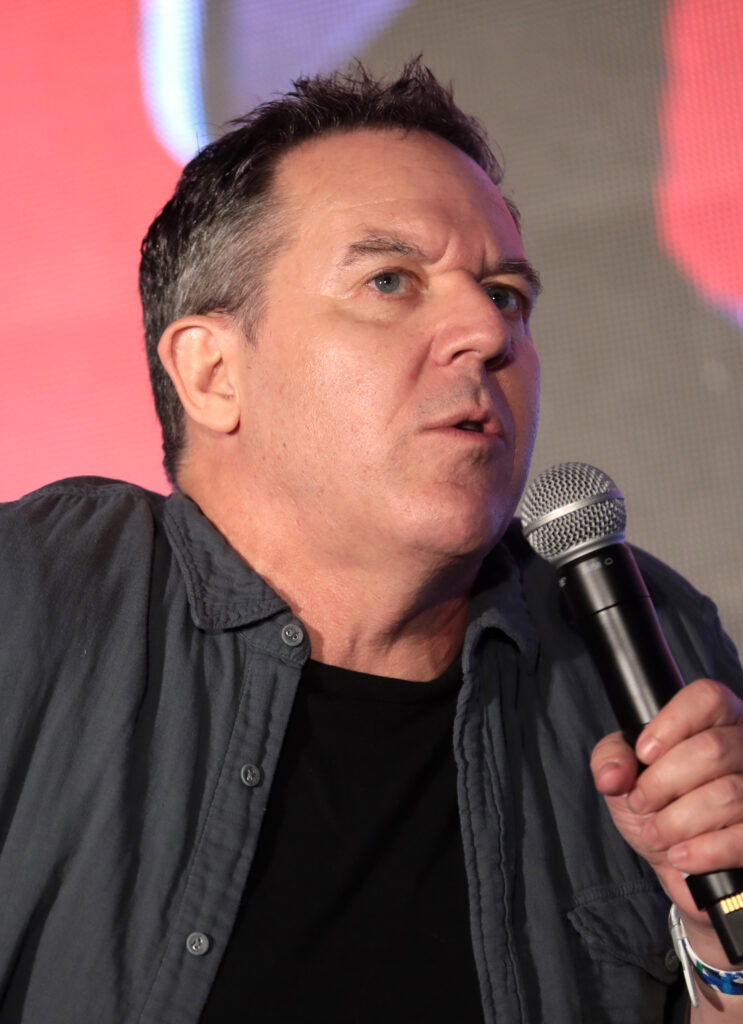
10. Contrasting Right-Wing Counter-Arguments from Greg Gutfeld
While many in the liberal-leaning late-night sphere rallied behind Colbert, Fox News Channel’s Greg Gutfeld offered a starkly different, right-wing perspective, echoing the sentiments of Donald Trump. Gutfeld, whose show *Gutfeld!* has carved out a niche as a politically biased counter-program, dismissed claims of censorship outright, framing the cancellation as a legitimate business decision by CBS.
With characteristic bluntness, Gutfeld asserted that CBS was “free to fire someone who’s stinking up a market like they took a dump in the produce section.” This vivid, no-holds-barred analogy underscored his view that Colbert’s politically charged humor was alienating, and the network was simply exercising its right to remove an underperforming asset. For Gutfeld, the idea that Colbert was being censored for his political views was an excuse, rather than a genuine concern.
Adding weight to his argument, Gutfeld often touted his own show’s ratings, with Fox News claiming *Gutfeld!* draws higher viewership than Colbert’s *Late Show*. While it’s true his program airs about an hour and a half before the major late-night shows, its success illustrates that a politically aligned, right-wing comedy format can indeed attract a significant audience in today’s fragmented media landscape. This success, for Gutfeld, served as proof that audiences might prefer a different kind of political humor, or perhaps, simply a different political leaning.
Ironically, despite Gutfeld’s defense of Trump and his critiques of Colbert, the former president is also engaged in a lawsuit against Rupert Murdoch, whose News Corp owns both Fox News and *The Wall Street Journal*. This highlights the complex and often contradictory web of alliances and conflicts within the media industry, where even ostensible allies can find themselves in legal battles over reporting that challenges power, regardless of political affiliation.

11. Solidarity and Wit from Fellow Hosts Jimmy Kimmel and Jimmy Fallon
In a notable show of late-night solidarity, Stephen Colbert’s fellow hosts rallied behind him following the surprising cancellation announcement, demonstrating a camaraderie that transcended network rivalries. Their reactions, blending humor with genuine support, served as a collective rebuke to CBS and a defiant stand for comedic freedom.
Over at NBC, Jimmy Fallon, host of *The Tonight Show*, offered a lighthearted yet pointed message. He joked that he was still the host of *The Tonight Show*, “at least for tonight,” a quip that underscored the precarious nature of their profession. Fallon also applauded Colbert’s impressive run, but then added a touch of satirical bite, joking that boycotts could cause CBS to lose millions of viewers, as well as “tens of hundreds watching on Paramount Plus,” subtly mocking the streaming platform’s modest audience figures.
Jimmy Kimmel, currently on summer break from his ABC show, chose Instagram to voice his outrage. His reaction was concise and direct: “F–k you and all your Sheldons CBS.” This unvarnished comment, referencing the popular CBS sitcoms *The Big Bang Theory* and *Young Sheldon*, perfectly encapsulated the raw frustration felt by many in the industry, suggesting that the network valued safe, broadly appealing content over challenging political commentary.
It is worth noting that a viral satirical article falsely claimed both Kimmel and Colbert had been fired by ABC, rather than CBS. This incident underscores the rapid spread of misinformation in the digital age, even as the genuine news of Colbert’s cancellation elicited widespread and legitimate responses from his peers, highlighting the real stakes involved in the late-night ecosystem.
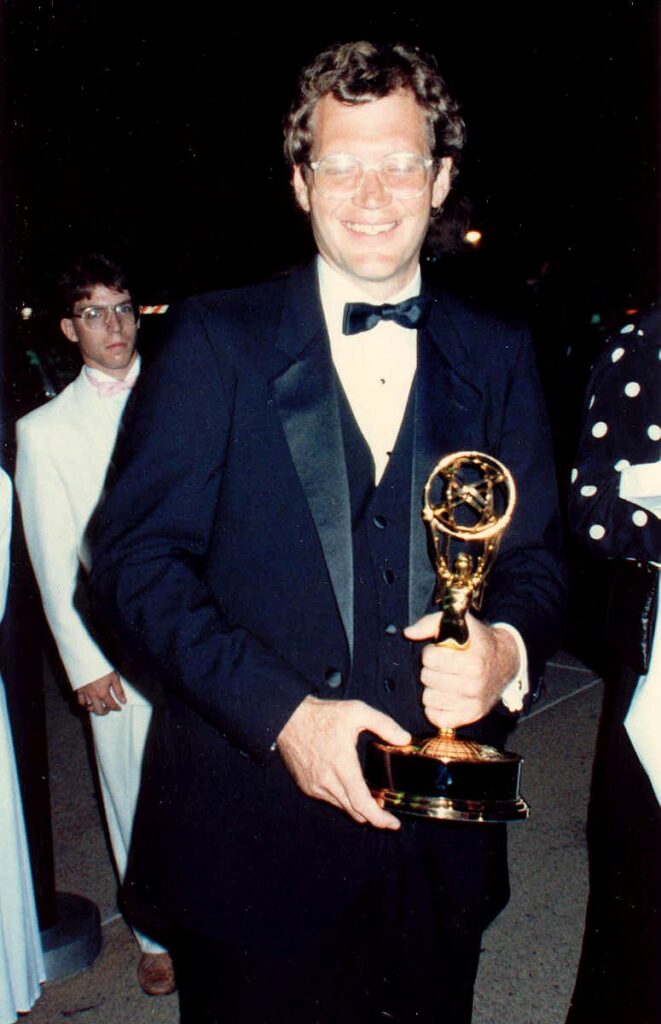
12. David Letterman’s Historical Grievances and Subtle Gestures of Support
While David Letterman’s direct condemnation of CBS’s “pure cowardice” was explicit, his support for Colbert and critique of the network were also conveyed through more subtle, yet equally powerful, gestures rooted in his own storied history with broadcast television. Letterman’s original move to CBS in 1993, which led to the creation of *The Late Show*, was itself a result of a profound grievance when NBC controversially chose Jay Leno to succeed Johnny Carson over him.
In the wake of Colbert’s cancellation, Letterman’s official YouTube channel became a platform for pointed commentary without official statements. A 20-minute compilation video, uploaded precisely when CBS faced intense criticism, featured old clips of Letterman “roasting CBS” during his own tenure. The video’s description, “You can’t spell CBS without BS,” explicitly linked past frustrations with present discontent, demonstrating Letterman’s long-held critical view of network executives.
Further solidifying his stance, Letterman’s channel also uploaded a 2006 interview with Stephen Colbert, then host of *The Colbert Report*, where they discussed Colbert’s infamous mocking of President George W. Bush at the White House Correspondents’ Dinner. This timely re-release, particularly after Colbert’s own defiant comments about Trump, served as a subtle but clear endorsement of Colbert’s brand of unvarnished political satire, signaling Letterman’s approval of his successor’s fearless approach.
These carefully curated uploads, chosen and timed by what fans lauded as an “undefeated” reaction team, conveyed Letterman’s alignment with Colbert and his long-standing disillusionment with corporate control over creative freedom. They represented a veteran’s nuanced way of saying, without uttering new words, that the integrity of late-night television was once again under threat from the very institutions meant to support it.
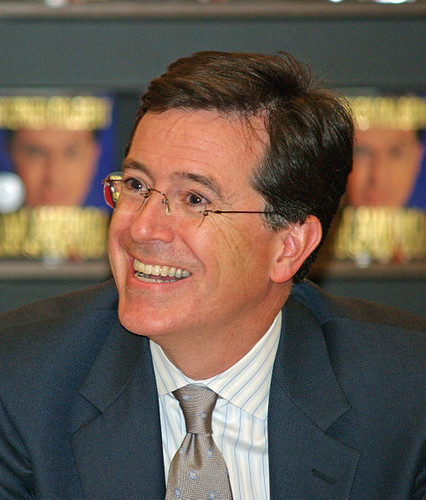
13. Stephen Colbert’s Defiant ‘Lame-Duck’ Tenure and Unvarnished Honesty
Stephen Colbert, facing the unprecedented news of his show’s imminent cancellation, immediately adopted a defiant posture, transforming his remaining months into an opportunity for “unvarnished” honesty. His opening monologue after the announcement masterfully blended humor with pointed critiques, joking that “cancel culture had gone too far” before declaring his freedom to speak even more frankly about powerful figures.
Colbert wasted no time in demonstrating this newfound candor. In a direct response to Donald Trump’s celebratory Truth Social post—where the former president gloated about the cancellation and disparaged Colbert’s talent—Colbert delivered a blunt and unprintable retort: “Go f–k yourself.” This incendiary statement immediately went viral, cementing his image as a host unwilling to back down, even in the face of corporate pressure or political adversaries.
David Letterman, observing this dramatic shift, quipped that he “loved this” for Colbert, labeling him a “martyr.” Letterman also shrewdly noted that the upcoming 10 months of Colbert’s show further undermined the “purely financial” argument from CBS. If the show was truly losing significant money, allowing it to continue for nearly a year would only perpetuate those losses, suggesting that contractual obligations or other factors, rather than immediate financial triage, were at play.
Indeed, Colbert’s unexpected “lame-duck status” has visibly emboldened him, allowing him to push even harder into his pointed political comedy. Freed from the perceived need to tread carefully for the sake of his show’s longevity, he now operates with an almost revolutionary zeal, using his platform to dissect power with even greater intensity, embodying the very spirit of satire that many feared was being suppressed.
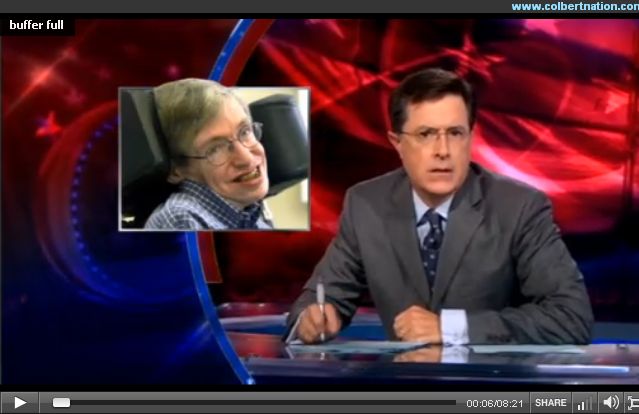
14. Shifting Dynamics of Late-Night Ratings and Audience Fragmentation
The context of *The Late Show*’s cancellation is inextricably linked to the broader, shifting dynamics of late-night television and the fragmentation of its audience. As Jon Stewart aptly observed, the entire genre is navigating a challenging era, feeling more like a “Blockbuster kiosk inside of a Tower Records” – a relic in a rapidly evolving digital landscape.
This challenging backdrop creates a complex picture when analyzing ratings. Stephen Colbert had proudly emerged as the “highest-rated personality in broadcast network late-night,” frequently outperforming rivals like Jimmy Fallon. However, this statistical success was juxtaposed with reports, like those from *The Wall Street Journal*, suggesting that despite high viewership, *The Late Show* might no longer be profitable for the network, highlighting the disconnect between traditional ratings and modern revenue streams.
Adding another layer of complexity is the rise of alternative late-night programming, exemplified by Fox News’ *Gutfeld!*. This show, with its unapologetically right-wing political bias, was touted by its network as the “highest-rated late-night program across television,” even surpassing Colbert. While its earlier airtime contributes to this, Gutfeld’s success demonstrates the increasing segmentation of the audience, where politically aligned content, even if it alienates half the viewership (as Jay Leno argued against), can still capture a dedicated and sizable base.
These contrasting narratives – a top-rated show deemed unprofitable, and a politically biased show gaining traction – reveal a late-night ecosystem grappling with audience polarization and evolving consumption habits. The traditional model of a universally appealing host is increasingly giving way to specialized content, leaving networks to weigh broad cultural impact against the fiscal realities of a fragmented and ideologically diverse viewership.
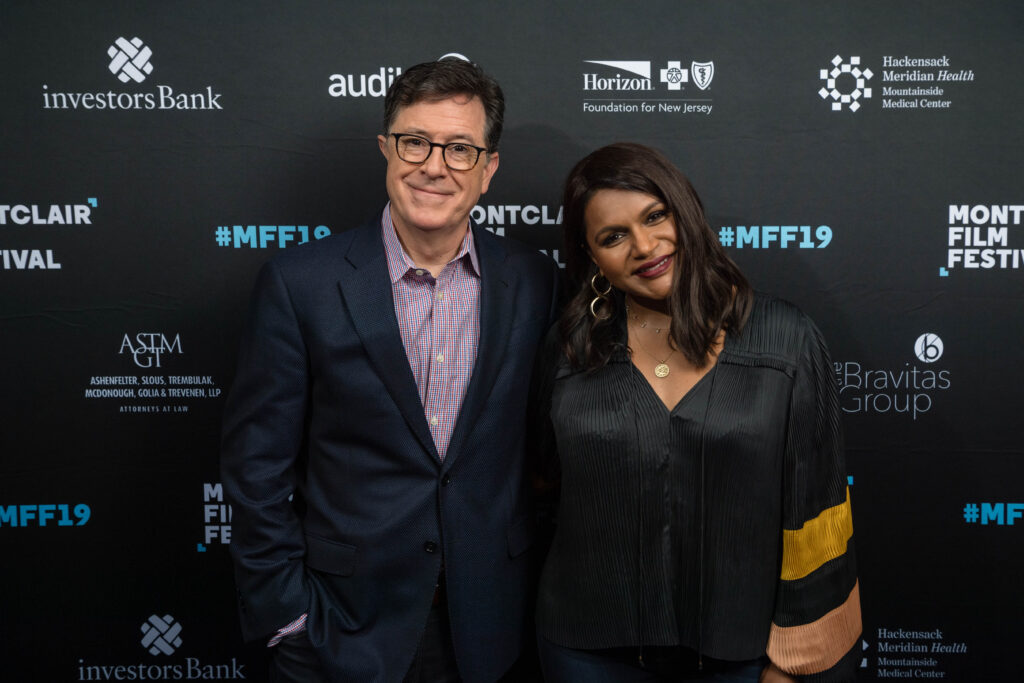
15. Broader Implications for Creative Freedom and Journalistic Integrity in American Media
The tumultuous saga surrounding *The Late Show*’s cancellation transcends the fate of a single television program; it forces a critical examination of the broader implications for creative freedom and journalistic integrity within American media. At its heart, this event exposes the enduring tension between the pursuit of corporate profit and regulatory approval, and the vital role of independent, politically engaged commentary in a democratic society.
Many critics, including David Letterman and Jon Stewart, articulated a profound fear that network decisions are increasingly being swayed by political considerations and a desire for corporate appeasement, rather than purely by artistic merit or audience engagement. The shadow of the Trump administration, coupled with Paramount’s urgent merger ambitions requiring FCC approval, created an environment where the perceived “path of least resistance” might involve silencing dissenting or inconvenient voices, thus undermining the very notion of a free press.
This situation highlights the potential for a chilling effect on political satire and critical commentary, particularly when powerful figures are targeted. If a top-rated host like Stephen Colbert can be canceled under such contentious circumstances, it raises serious questions about the willingness of other media outlets to host content that might invite political or corporate backlash. The stakes are immense, as a media landscape shorn of its most incisive and courageous voices risks becoming an echo chamber, rather than a forum for robust public discourse.
Ultimately, the events surrounding *The Late Show*’s demise serve as a potent reminder of the precarious balance between entertainment, journalism, and the corridors of power. It prompts an urgent conversation about whose interests are truly served when media conglomerates make programming decisions under intense scrutiny, and what price society pays when creative freedom and journalistic integrity are perceived to be compromised in the pursuit of greater corporate gain. The late-night stage, once a space for shared laughter and gentle ribbing, has become a battleground, reflecting the deeply polarized soul of a nation and the ongoing struggle for independent expression.
Read more about: The Shocking Truth Behind Late-Night TV’s Free Speech Showdowns: 14 Untold Tales of Executive Pressure and Comedian Crackdowns
The curtain may be drawing on *The Late Show with Stephen Colbert* in its current form, but the profound questions it has ignited will resonate far beyond the final broadcast. This isn’t merely the end of an era for one show; it’s a pivotal moment forcing us to confront the true cost of media consolidation and political influence on the voices that shape our understanding of the world. The legacy of this cancellation will not be found in ratings reports or financial statements, but in the ongoing debate about the courage of conviction in an age where standing up to power often comes with an unforeseen, and deeply troubling, price. The late-night wars have never been just about humor; they’ve always been about truth, and the fight for it continues.



